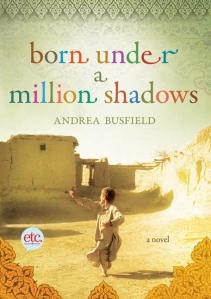 The Boy in the Striped Pajamas
The Boy in the Striped Pajamas is about a regular kid -- not a child prodigy, not particularly wise beyond his years. The only thing that separates him from the willfully blind adults who surround him is that he has not yet learned to hate. The film never depicts him as a hero, at least an intentional one, just a kid who acts like any other would act, innocently unknowing of the expectations and prejudices of those around him.
The protagonist is a blue-eyed, brown-haired eight-year-old named Bruno (Asa Butterfield) living in a stage were fantasy and reality remain merged. He resides with his family in Germany, with his older sister, soldier dad, and mom. He tries to find fun as best he can, with no help from his sibling, who is the simpering lapchild type, engaged in a misguided coming-of-age, decorating her walls with appreciation for her country and throwing aside her dolls.
After living comfortably in their home, his family announces they are to move away, closer to the new job. His father has earned a promotion. This is supposed to be good news, but isn't for Bruno - he wants his old house and friends and doesn't want his life changed. Worse, he has no say about the matter and is moved to a base where men in gray pass him stiffly, talking to his father.
There are no children he can see, until he stumbles quite by accident on a farm occupied by underwashed, underfed people. He is encouraged to stay away, as his father tells him the people are not humans and shouldn't be treated as such. But they seem human enough to him, especially Schmeul, a boy his age who catches his attention. They meet and laugh at each other's names, and promise to visit more.
In a different situation, the friendship would be considered harmless, and Bruno would be able to freely play with the boy before his return. The fact that he is living in Auschwitz puts a damper on that ideal. As is, Schmeul is treated as a flea-ridden cat -- don't bother to get attached to him, he'll be gone soon enough. But love for his fatherland has not impressed itself in Bruno's mind yet, and he ignores the others warnings', pleased to have another child to interact with.
This film is based on a young adult novel by John Boyne, described as a "fable" by the author. It contains telling details of the holocaust, but from a child's eye view -- nothing is treated as if Bruno's concentration was turned, and yellow stars and fences are interspersed with the normal thoughts of a kid - toys, friends, and irritating siblings. It is a small but powerful story, meant to send a message with only as much information as we need. The rest we know for ourselves.
For basically first-time actors, the young boys who play Bruno and Schmeul do fairly well. However, I was annoyed by the skips and jumps in Butterfield's performance. In scenes of fantasy and play, he behaved naturally, but when the story becomes more intense, he seemed slightly confused about how to react to the script, which hampered the believability somewhat. He did a generally good job, however, and one shouldn't want him to progress too fast to avoid a Culkin-ish speed-up of maturity.
The Boy in the Striped Pajamas is quiet and infused with moral ambiguity. Bruno doesn't view his father as a monster even as he begins to know more. Even his mother doesn't seem completely aware of the situation, and although she knows of the prisoners, it still comes as a shock when she figures out what the torrent of smoke streaming into the air is.
Also, it contains the most shocking and unexpected ending since
The Life Before Her Eyes. Although the adults turn away, reminding themselves of their good fortune that they are not within the barbed fence, they are forced, in the most horrendous way possible, to look back. Everybody finds their inner humanity, and no one wins (Rated PG-13.)



 *
*







